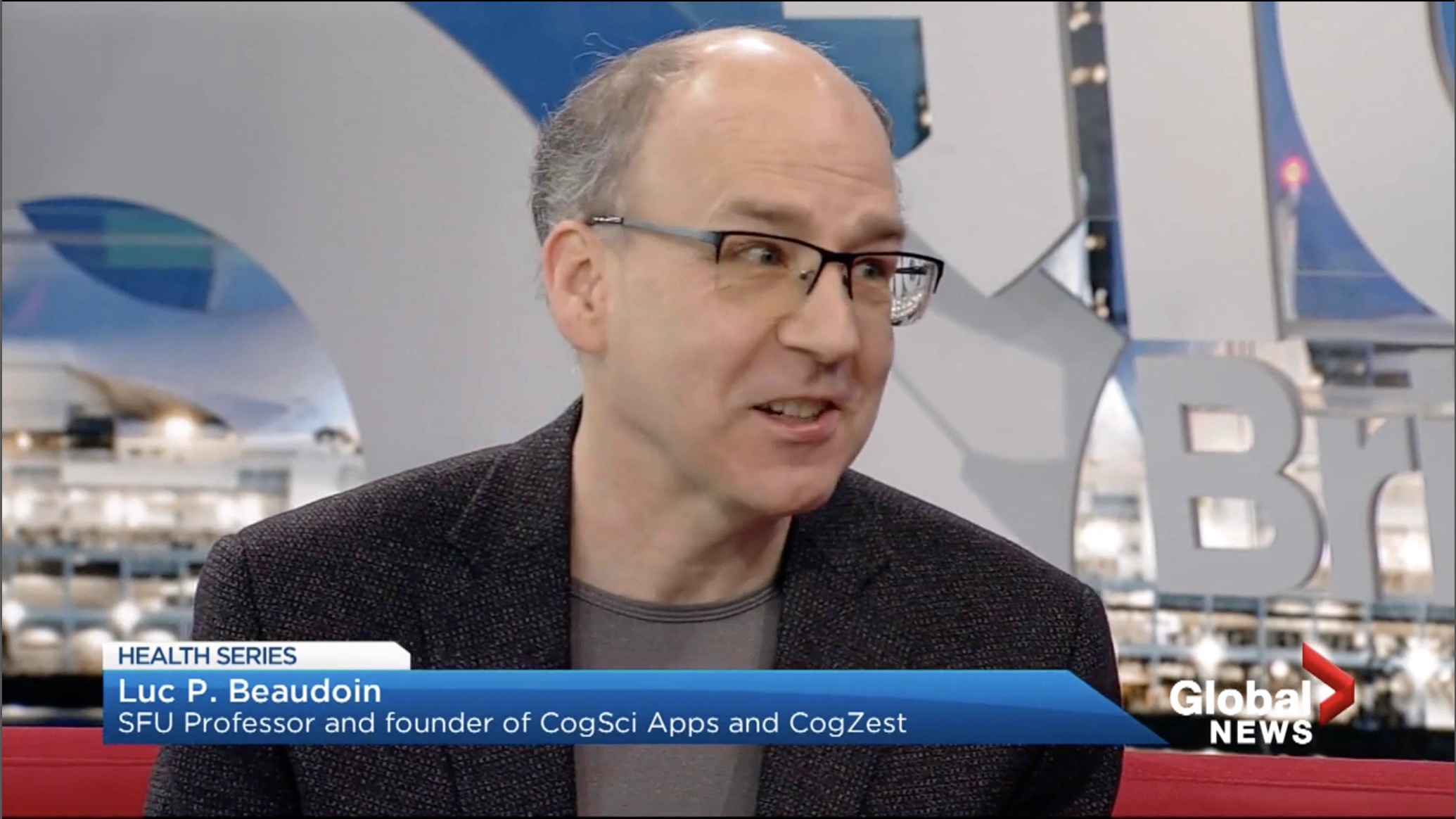
Global TV’s caption could have been more precise and labeled me an Adjunct Professor. I am not tenured faculty at SFU (nor is that on my bucket list 😉 ).
I was interviewed on Global TV BC last week as part of their “Health Series: Improving brain fitness”. Some of the discussion was to revolve around software for improving cognition and cognitive productivity.
What I hadn’t noticed in the various communications leading up to the interview was its scheduled duration: just 4 minutes! That includes the time the interviewer takes to ask her questions… So, I was playing their “brain game” that morning: trying to funnel my thoughts on these subjects into very succinct, helpful answers. Not an easy game.
Continue reading A Q & A Brain Game on Brain Games and Self Improvement
